How to make compost – tips and tricks to create richly fertile compost
Save your kitchen food scraps and turn them into food for your garden - anyone can do it
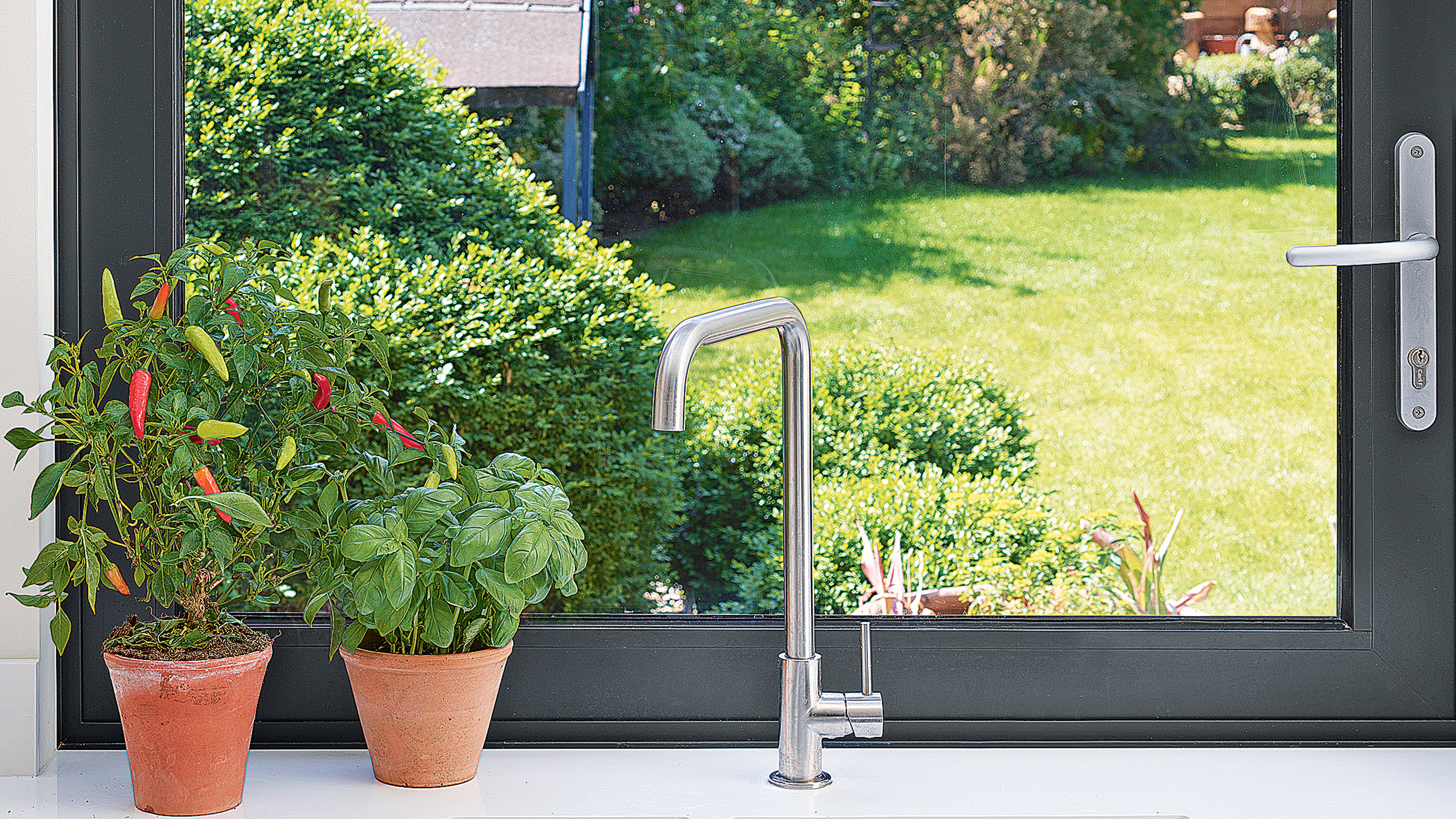

Amy Cutmore
If you've been flexing your green fingers this spring, learning how to make compost should definitely be next on your to do list. Not only will it save you from going out and buying heaps of soil, you'll also be putting your kitchen food waste to good use instead of contributing it to landfill.
Learning how to make compost is fortunately very easy and beginner friendly. Whether you're learning how to grow strawberries in pots or you've got some flowers from the garden centre that need planting, homemade compost will help them thrive. Plus, it's a great budget garden idea, as you won't need to rely on store bought compost anymore.
'As we start to see the benefits of spring with longer days and warmer temperatures, gardeners who managed to maintain their compost piles throughout winter will now see them thrive and for those who are just starting theirs, now is as good a time as any', says Samantha Richards, Garden Gazebo Expert, Gazeboshop.
We've compiled all of our top tips and tricks on how to make compost into this essential guide, so that you can help your garden thrive this summer.
How to make compost at home
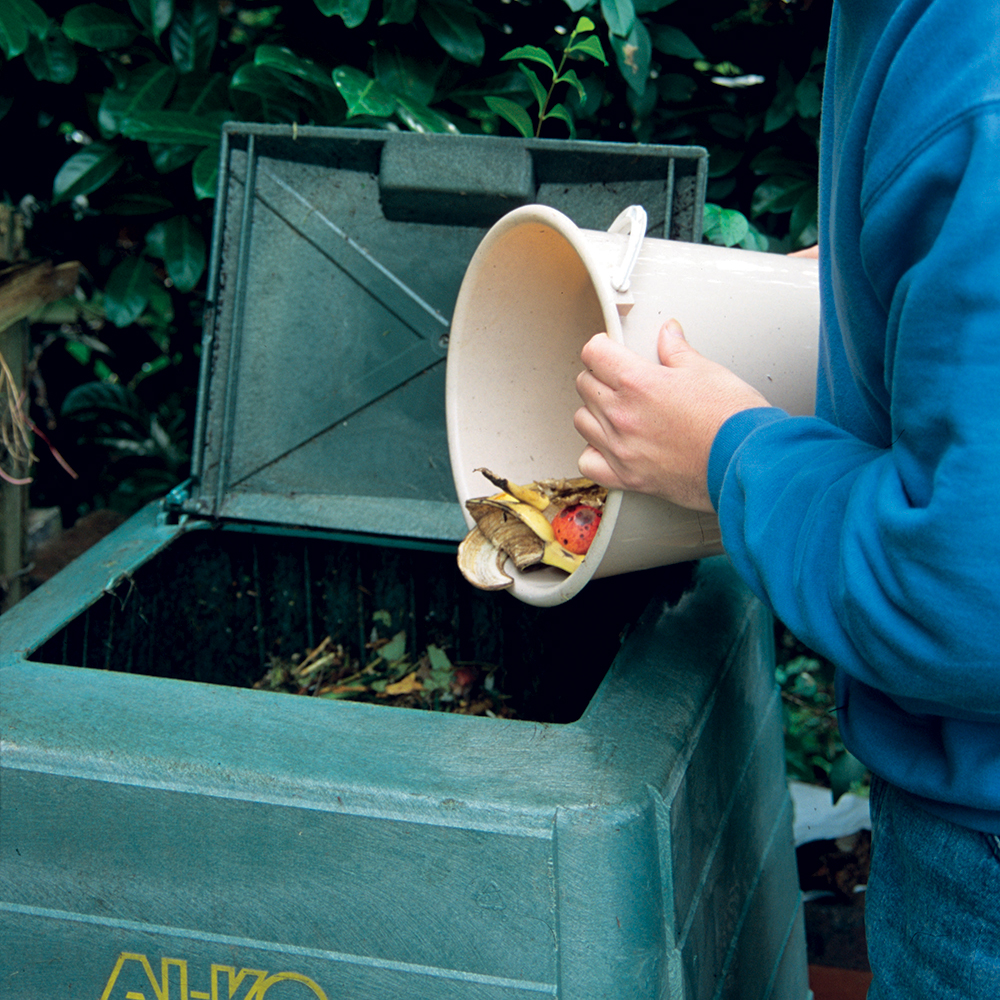
With the help of our guide, you'll be able to create rich and fertile compost, easily and efficiently. Learning how to make compost is essentially a brilliant free garden idea, as you'll be able to use the finished product to make all of your garden plants - indoors and out - thrive.
What you'll need
- Compost bin - these compost bins from Amazon are ideal for storing and converting your food waste
- Kitchen compost caddy - these compost caddies from Amazon will store your kitchen waste before you compost
- Biodegradable caddy liners - these food waste bags from Amazon are fully compostable, so you can add them to your heap along with your food scraps
- Garden fork - to turn your compost heap and help keep it aerated. These garden forks from Amazon will do the job
1. Get a good compost bin
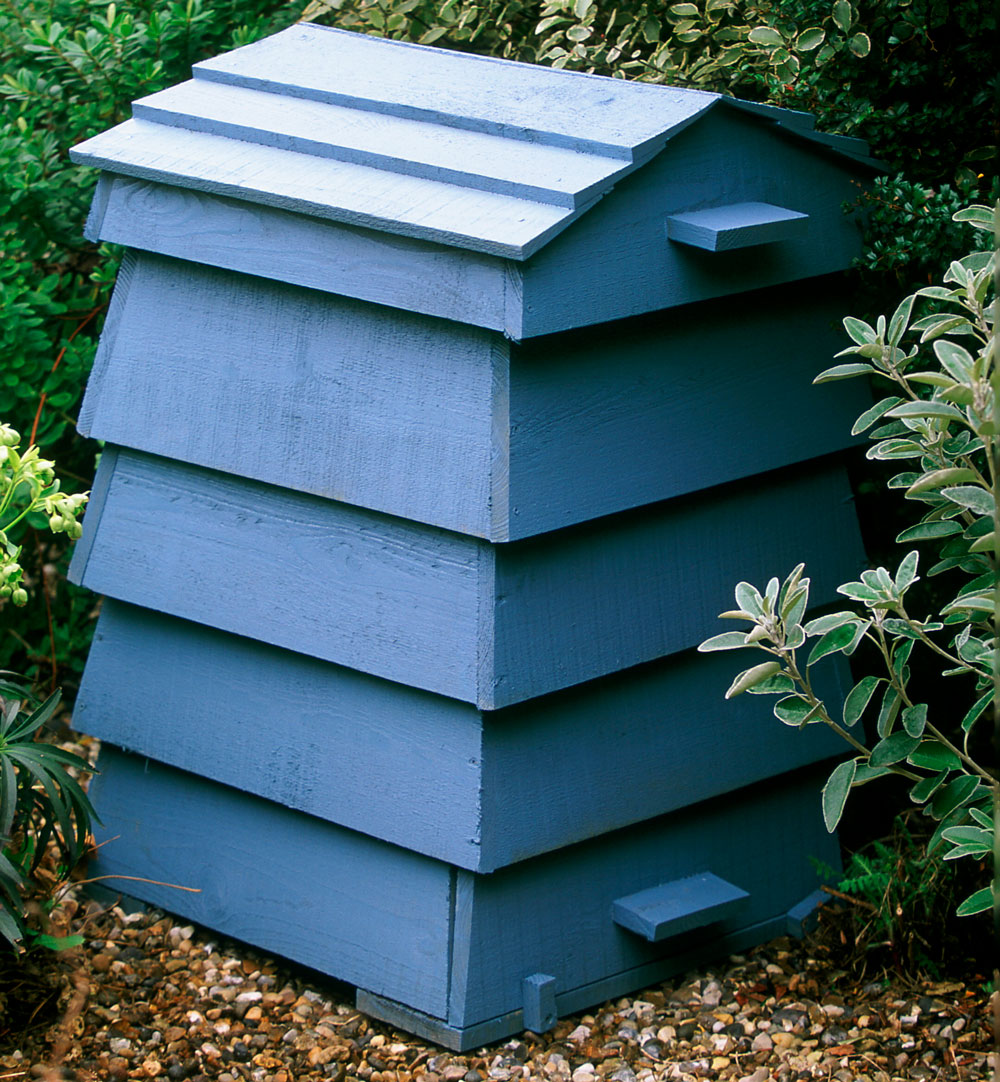
The first step to learning how to make compost is to invest in a compost bin. Plastic bins usually have a door at the front so mature compost can be removed without disturbing the whole heap, and a darker colour finish will help retain moisture.
This WFX Ultimate 380L Plastic Compost Bin, £81.99 at Wayfair, is a great option for storing large amounts of compost. There are more affordable options too, like this Denny International® 300L Outdoor Compost Bin, £26.95 at Amazon.
2. Find a good position for your bin
Find a good position for your compost bin within your garden landscaping ideas. Your compost site should be level, well-drained and ideally on bare soil to give easy access to worms, who helpfully break down the contents. If that's not possible, place your compost bin on concrete or other hard surface. And whatever you do, don't put it on top of wooden decking, as the wood will rot and your garden decking ideas will be ruined.
Make sure your compost heap is sheltered – you need the compost to retain warmth for the contents to rot down well. Don't position it in full sun, as this will dry out the compost.
3. Collect your 'greens'
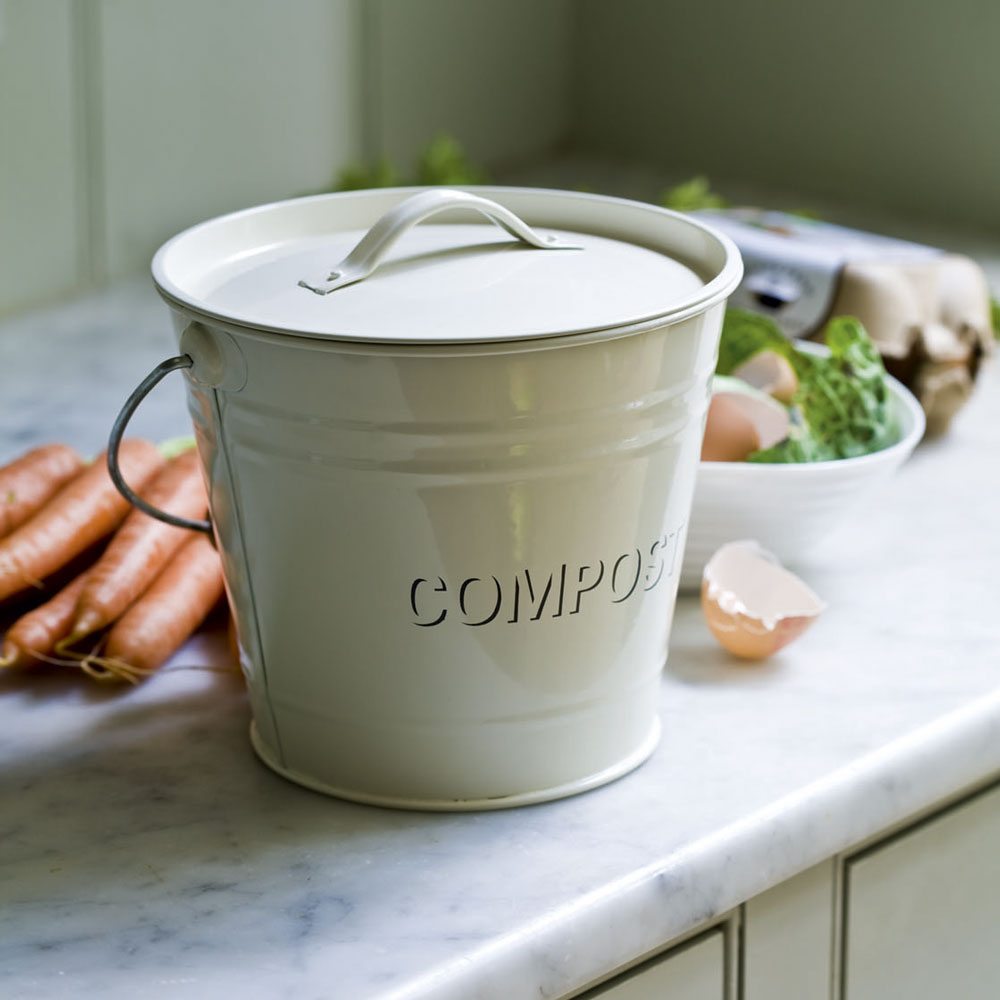
Use a kitchen compost caddy to collect your food scraps. Line your caddy with a compostable bin liner so you can easily remove this and take it to your outdoor compost bin when it's full.
Organic matter that you add to your compost bin is known as 'greens'. 'Green ingredients supply nitrogen and include grass cuttings, vegetable peel and weeds', explains Fiona Jenkins, Gardening Expert, MyJobQuote.
4. Collect your 'browns'
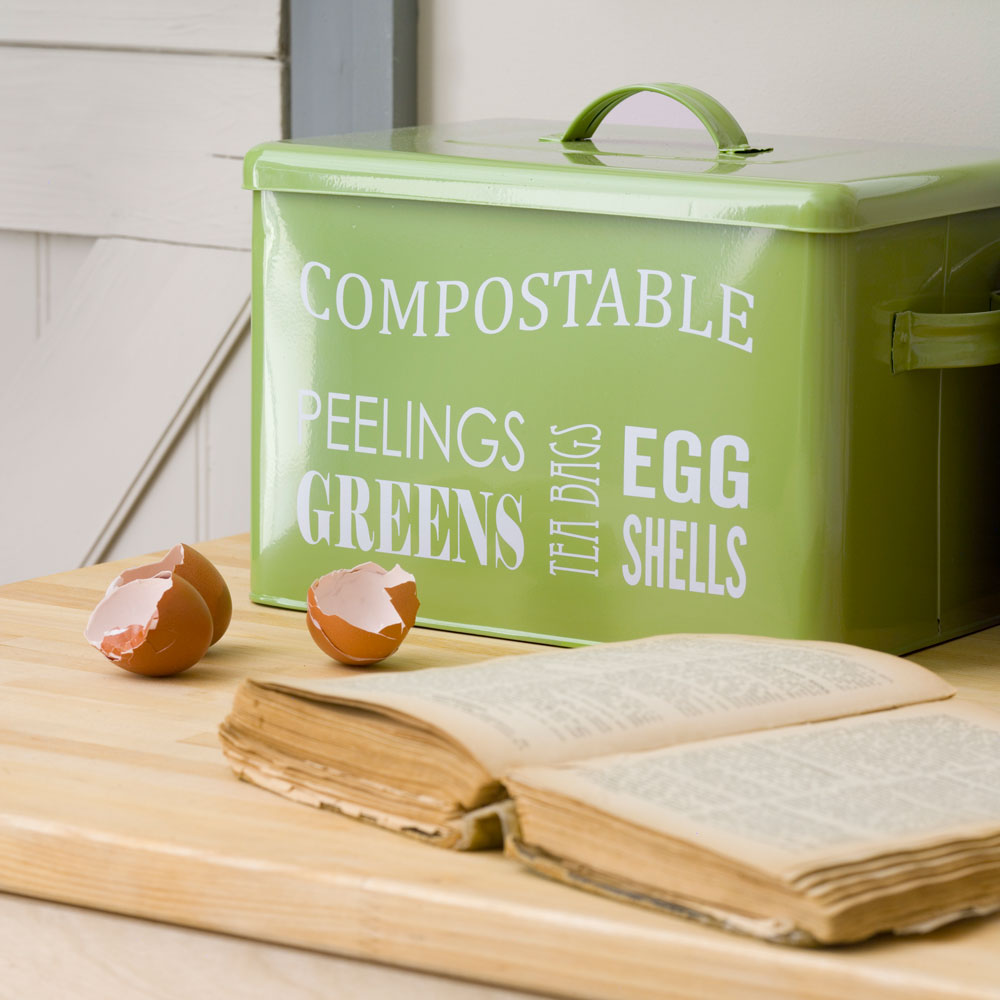
The other components that make your compost are known as 'browns'. 'Brown ingredients are the carbon-rich elements including cardboard, straw and trimmings from shrubs and hedges', says Fiona.
A good compost pile will have a healthy mixture of greens and browns, but should be around 4 parts browns to 1 part greens. Keep an eye out for compostable materials; a lot of companies these days are making efforts to be more sustainable, so they'll use biodegradable packaging which you can add to your compost bin. Crushed egg shells are great, as these will deter slugs and snails.
Break up your composting materials into smaller pieces to speed up the process. Larger bits of debris will take longer to decompose.
5. Tend your heap regularly
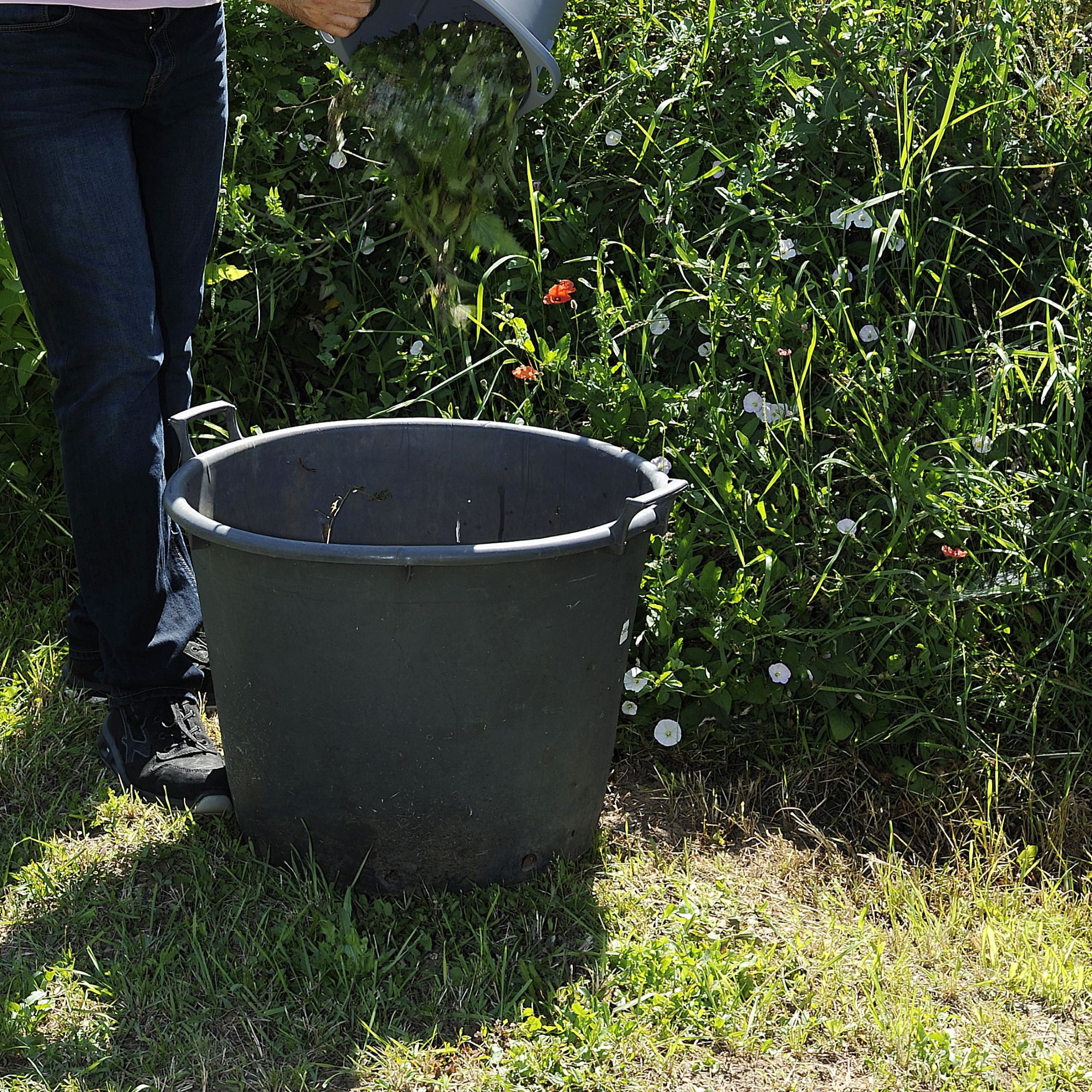
Use a garden fork, shovel or special aerator tool, like this All-Green Darlac Compost Aerator, £19.99 at Amazon, to turn your compost once a month. This helps to mix up the matter and add air. You might need to pour on a drop of water in very hot weather.
6. Exercise patience
Compost takes between six months and two years to reach maturity. You'll know that it's ready once it’s dark and crumbly, with a strong earthy smell.
What NOT to compost
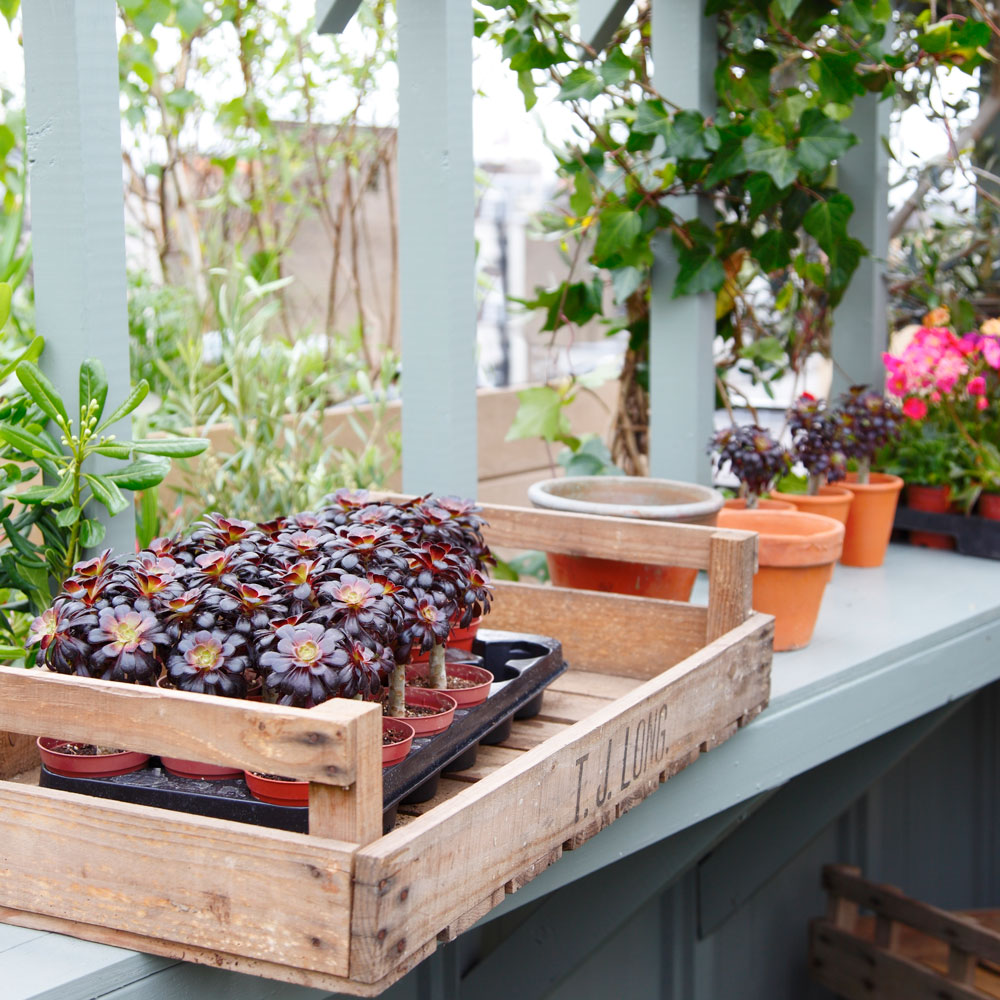
Knowing how to make compost also involves knowing what you shouldn't be putting in your compost bin. Below are the things to avoid if you want to create a rich and fruitful compost heap.
1. Dairy
'Dairy products like cheese, milk and yoghurt should be thrown in the bin instead of in your compost as they will go foul and attract vermin', says Samantha Richards. 'It’s also worth checking the ingredients of processed foods that you are thinking of adding to the compost as ones that contain a lot of dairy or fat should be avoided too.'
2. Pet faeces
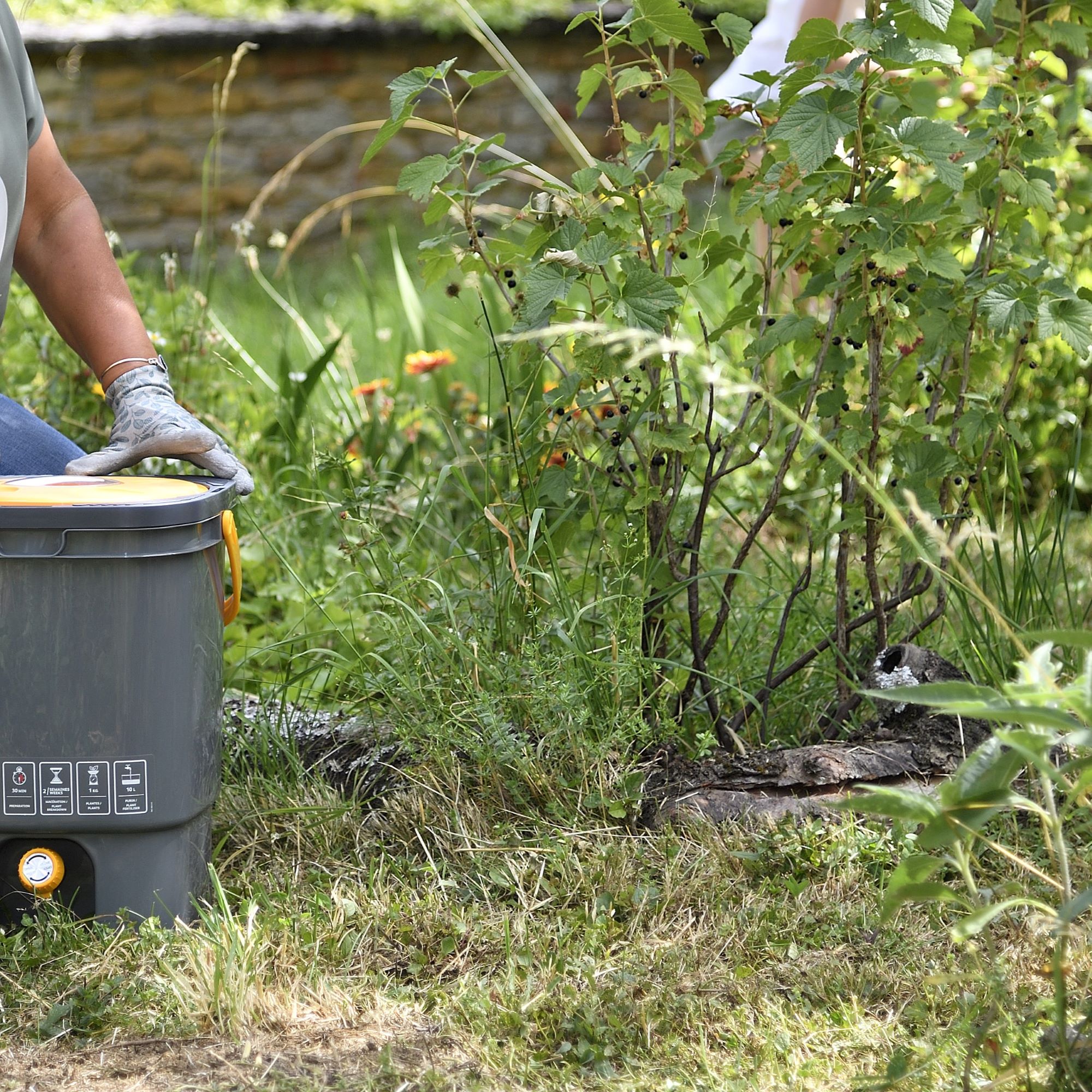
Animal manure is a popular component for fertile soil, but adding your pet faeces to your compost bin is a big no no, as your compost heap will become a hot spot for bacteria, germs and viruses.
Err on the side of caution with cat litter as well. Cat litter can only be composted if it is plant-based, which will usually be made from grains, paper, or wood pellets. Some cat litter bags will indicate that they are compostable, but if this is missing from yours and it's not clear whether it's plant based, it's best not to add it to your compost bin.
3. Meat, bones and fish
There's a lot of kitchen food waste which is great when you're learning how to make compost, but animal by-products like meat, bones and fish should go in your regular waste bin instead. 'Though they are biodegradable and do contain nutrients, they will rot in your heap and start to smell which will attract all kinds of animals and rodents - definitely not something you want in your garden or your neighbours want next door', Samantha says.
4. Stickers on fruit and veg
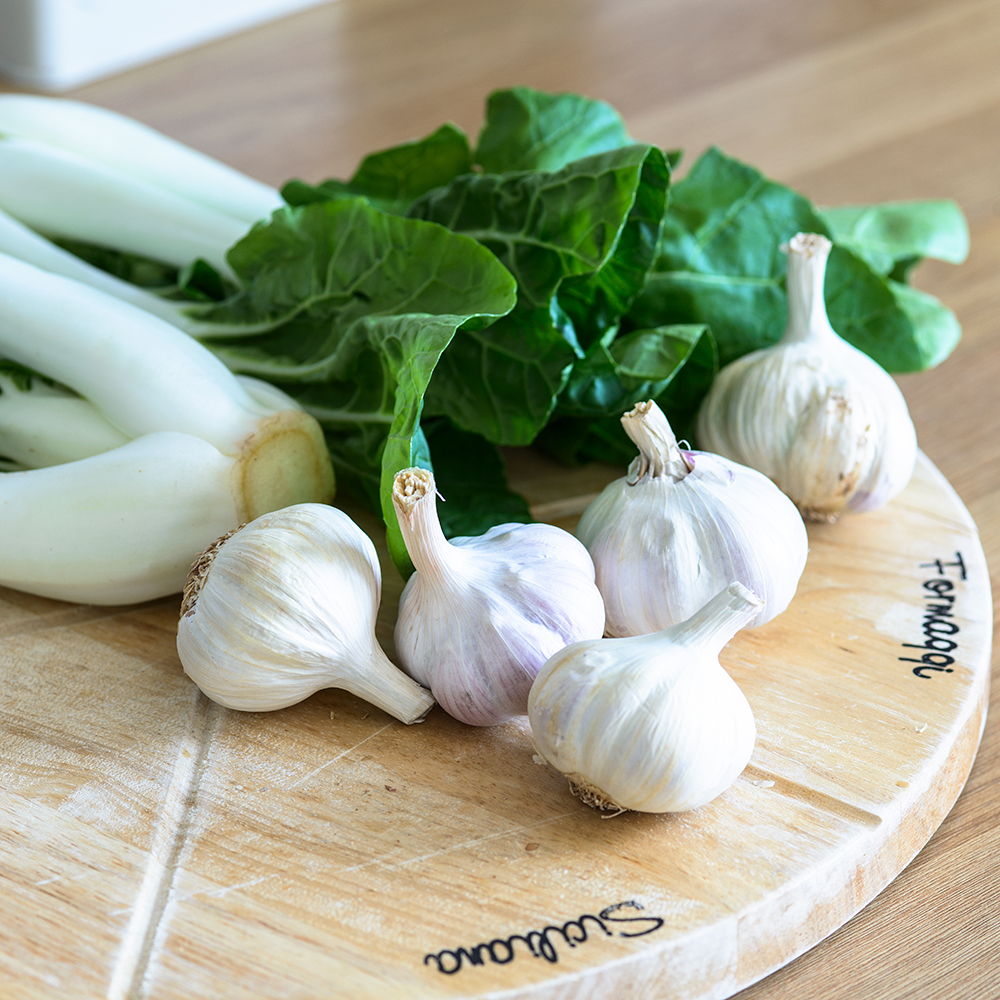
Don't forget to remove the stickers from your fruit and veg before adding them to your compost bin. Obviously, these stickers aren't biodegradable, and it can be quite tedious to pick these out of your compost heap later on.
FAQs
How do you make compost fast and easy?
'The first step in ensuring you get a fast-working compost pile is making sure you have the right balance of carbon and nitrogen based materials,' says Calum Maddock, Gardening Expert, HomeHow.co.uk. 'Carbon materials are the dry materials such as wood, straw, old leaves, ash, and dry grass. 'Nitrogen materials are things like lawn clippings, animal manure, coffee grounds, and fresh vegetable scraps.'
Carbon - or brown - materials provide a good base for homemade compost, where nitrogen - or green - materials provide organic matter that will decompose to make rich, fertile soil. James recommends you aim for around 4 parts carbon materials to 1 part nitrogen materials for making fast and easy compost.
'If you want the process to be quick, consider adding some compost from an old pile or use a compost starter as this can introduce the bacteria and organisms needed to break the pile down quickly. You can also speed up the composting processing by shredding or chopping the materials into smaller pieces before adding them to the pile.'
What is the best thing to start compost in?
'If you’re new to composting, you’ll need a container for your compost,' says gardening expert Fiona. 'You can repurpose old pallets for this if you’re on a budget. Alternatively, check with your local council to see whether they have a discount scheme for buying a compost bin.'
A compost bin is ideal to start composting in, as it will keep your compost contained. Alternatively, you can just start composting in a heap in your garden. The results will be the same, you just need to make sure you compost stays aerated and moist.
Get the Ideal Home Newsletter
Sign up to our newsletter for style and decor inspiration, house makeovers, project advice and more.

Katie has been writing freelance since early 2022, specialising in all things homes and gardens, following achieving a Masters in Media and Journalism. She started out writing e-commerce content for several of Future’s interior titles, including Real Homes, Gardeningetc, Livingetc, and Homes and Gardens. Since then she’s been a regular contributor on Ideal Home’s digital team, covering news topics, how-to guides, and product reviews.
- Amy CutmoreContributor
-
 Will a conservatory add value to your home and how can you maximise it?
Will a conservatory add value to your home and how can you maximise it?This is what the pros say
By Amy Reeves
-
 I’ve been looking for a new signature scent for my home and The White Company's new fragrance is the exact summer holiday smell I needed
I’ve been looking for a new signature scent for my home and The White Company's new fragrance is the exact summer holiday smell I neededSantorini smells fresh, summery and sophisticated
By Kezia Reynolds
-
 How to remove algae from garden walls in five steps – and the cleaning product experts rave about for tackling it fast
How to remove algae from garden walls in five steps – and the cleaning product experts rave about for tackling it fastExperts share their top tips for getting garden walls algae-free
By Katie Sims